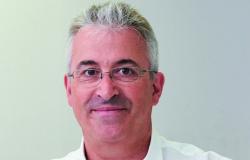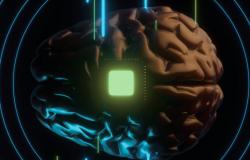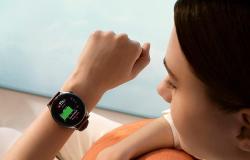“ When you are dead, your patients, you will no longer be able to treat them ! », asserts one day the attending physician of Dr Maxim Challiot. In fact, a patient long before becoming a doctor, the young practitioner was faced with health problems: “I don’t have unlimited energy. And I could no longer cope with 15-hour days without putting myself in danger… on the road, on the way home. », says the latter, now aged 32 and who has suffered from narcolepsy since the age of 16. Furthermore, while a second year medical student, the young man declared a serious illness requiring treatment in intensive care. “ I almost died, but what worried me were my exams “. In rehabilitation, he meets a specialist in physical medicine and rehabilitation (MPR). “ He gave me sincere attention. And understood the origin of my stress and the obstacle to my rehabilitation. I found it incredible that he took this time listening ! » . A mentor behind Maxim Challiot’s choice of specialty: “ I wanted to become that doctor guy… Attentive.”
I could no longer endure 15-hour days without putting myself in danger… on the road, on the way home…
Dr Maxim Challiot
Disenchantment
In his turn MPR, the young practitioner worked for two years at the public hospital in the Provence-Alpes-Côte-d’Azur region and in the clinic, working with amputee patients. “ I quickly became disenchanted », Confides the man who went from four to five visits to 25 in the morning! A frantic pace which forces him to limit doctor-patient exchanges, to the sole pain of amputation. However, underlines the practitioner: “ This cannot be enough. We must also take into account the phenomenon of trauma linked to the loss of a limb and the mourning of the life before.…”. The young doctor then decides to go to his patients’ bedsides on weekends via on-call duty. “ But I completely exhausted myself from the task…”, testifies the latter. If he has avoided burn-out, the practitioner is overtaken by brown-out (loss of meaning at work).
From the hospital environment to the medico-social
The young MPR then made the decision to leave the hospital environment. “ I thought about where I wanted to put the most energy and where my attention to others could be most useful.. » Heartbreaking but necessary. Change of direction for someone who has been a specialist for two years! He decided to invest in the medico-social sector which concerns establishments dedicated to severe and medium disabilities. Some manage the education of children with multiple disabilities, others take care of adults lacking autonomy (homes, foster homes, etc.). The young practitioner chooses to engage in the professional reintegration of victims of life accidents (stroke, head trauma, burn-out, etc.). For two years, he has been caring for head trauma patients part-time. Medical-social is still too little known to health professionals, especially since “ the problem is the salary…”, readily admits Dr Maxim Challiot. “ But I find that it is an environment that is very respectful of people, of the mental load, of the quality of life… », he pleads however.
Caring for caregivers
More sensitive than ever to the deterioration in the health of professionals, Dr. Challiot created a support group on Facebook. Initially intended only for doctors in distress – it now has nearly 1,000 colleagues and has now expanded to include all caregivers. Strongly committed to prevention, the young MPR also works within the SPS Association (Care for Health Professionals and Students) for which he is regional delegate in the PACA region. The organization offers permanent psychological help via a mobile app: Asso SPS which redirects towards medical-psychological care and in complete confidentiality.
Involved in these issues, Dr. Challiot was also involved in directing a thesis on the quality of life and mental health of liberal general practitioners in 2024. ” It’s catastrophic ! Results collected from 980 colleagues, should be published in September. Several elements were evaluated: mental health, diet, sleep, medication consumption…”, details the doctor who points out the frequency of depression, anxiety disorders and addictions and emphasizes that the situation is “ significantly worse among general practitioners than for the general population “. And the work carried out reveals that one in four practitioners does not have a treating doctor. A profession that cares for others but doesn’t have the time to take care of itself, an observation that echoes her own experience.






